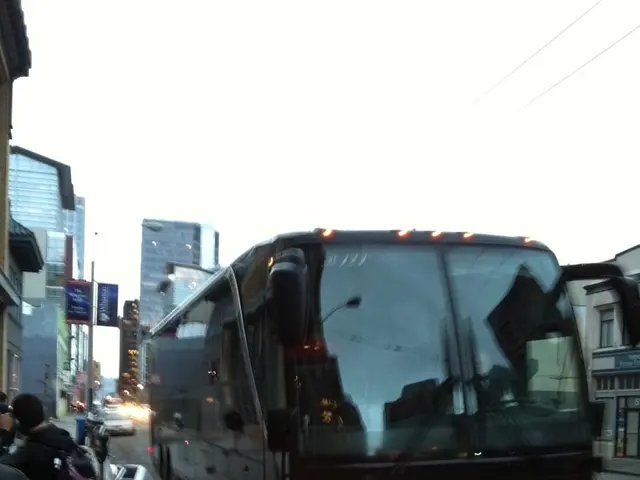The Proper and Improper Employment of Artificial Intelligence
Artificial Intelligence and the Future of Work: A Call for Responsibility and Solidarity
Metropolitan Archbishop Borys A. Gudziak of the Ukrainian Catholic Archeparchy of Philadelphia has raised concerns about the growing use of artificial intelligence (AI) in the workplace, particularly its potential impact on vulnerable groups such as immigrant workers, farm laborers, low-wage earners, and young people.
In a statement for Labor Day, Archbishop Gudziak emphasized the importance of protecting the dignity of workers amid technological advancements. He believes that technology should enrich, not undermine, the sacredness and dignity of human labor.
The pope has long encouraged an approach to AI with "responsibility and discernment," ensuring it serves the common good and benefits all people. This sentiment is echoed in the Vatican document on AI, "Antiqua et Nova," which highlights two threats AI poses to the dignity of labor: desking workers and displacing them altogether.
The current AI revolution is reshaping the world of work in many industries. While AI can make work more efficient and creative, as seen in its potential use in healthcare, there is a risk that it could lead to job losses, impacting families and communities. AI can 'deskill' workers, reducing them to rigid and repetitive tasks and eroding their ability to carry out creative or complex work independently.
However, Archbishop Gudziak warns against AI replacing human compassion or human expertise in medical evaluation. He acknowledges that AI can enhance work, but it should never replace the essential human qualities that make work meaningful and fulfilling.
In response to these concerns, Archbishop Gudziak calls for workers, especially through labor unions and worker centers, to be included in business and policy decisions shaping the future of work. He believes that Catholics should ensure that the benefits of emerging technology are shared equitably.
The government must address the challenges of AI with a sound legal and regulatory framework. Now is the time for a deeper dialogue between workers and decision-makers to discern common causes and shared solutions.
In conclusion, on Labor Day, we turn in prayer to Saint Joseph the Worker, asking for protection of workers' rights, courageous advocacy for the vulnerable, and ensuring technological progress always honors the sacredness of human work.
The organization that published a document on the impact of artificial intelligence on the labor market, with the participation of Archbishop Gudziak, is not explicitly identified in the provided search results. However, the call for responsible and equitable use of AI in the workplace is a message that resonates widely, reflecting a growing concern for the impact of technology on society and the workforce.
Read also:
- Peptide YY (PYY): Exploring its Role in Appetite Suppression, Intestinal Health, and Cognitive Links
- Toddler Health: Rotavirus Signs, Origins, and Potential Complications
- Digestive issues and heart discomfort: Root causes and associated health conditions
- House Infernos: Deadly Hazards Surpassing the Flames






